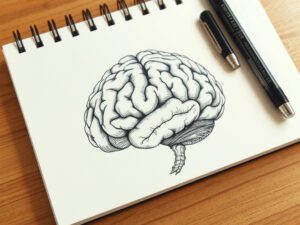Concussion Checklist
Concussion Checklist of Symptoms
Signs and Symptoms of a Concussion
A concussion is a type of traumatic brain injury (TBI) caused by a sudden jolt or blow to the head or body, leading to the brain moving rapidly inside the skull. While concussions are often considered mild brain injuries, their effects can be serious and long-lasting if not addressed properly. Understanding the signs and symptoms of a concussion is essential for early identification and treatment.
Common Symptoms of a Concussion
Concussion symptoms vary in severity and can appear immediately after the injury or develop over hours or days. They fall into four main categories: physical, cognitive, emotional, and sleep-related.
1. Physical Symptoms
- Headache: Often the most common symptom, ranging from mild to severe.
- Dizziness: Feeling lightheaded or unsteady on your feet.
- Nausea or Vomiting: Often experienced shortly after the injury.
- Blurred or Double Vision: Difficulty focusing or seeing clearly.
- Sensitivity to Light and Noise: Increased discomfort in bright or loud environments.
- Fatigue: Feeling unusually tired or low on energy.
- Balance Problems: Difficulty maintaining balance or coordination.
2. Cognitive Symptoms
- Confusion: Feeling disoriented or struggling to follow directions.
- Memory Problems: Forgetting events before or after the injury (amnesia).
- Difficulty Concentrating: Struggling to focus or process information.
- Slowed Thinking: Feeling as though your thoughts are sluggish or foggy.
3. Emotional Symptoms
- Irritability: Increased frustration or quick temper.
- Sadness: Feeling down or emotionally drained.
- Anxiety or Nervousness: Unexplained feelings of worry or fear.
- Mood Swings: Rapid changes in emotional state.
4. Sleep-Related Symptoms
- Insomnia: Trouble falling or staying asleep.
- Sleeping More Than Usual: Feeling the need for excessive sleep.
- Difficulty Waking Up: Struggling to get out of bed or stay awake.
Delayed Symptoms to Watch For
While many concussion symptoms appear immediately, some can be delayed by hours or even days. These include:
- Chronic Headache
- Increased Sensitivity to Light or Noise
- Persistent Fatigue
- Difficulty Concentrating for Extended Periods
- Emotional Outbursts or Changes
When to Seek Emergency Medical Attention
Some concussion symptoms indicate a more serious brain injury and require immediate medical care. Seek emergency attention if you notice:
- Loss of Consciousness: Even briefly.
- Repeated Vomiting
- Severe Headache That Worsens Over Time
- Unequal Pupil Size
- Slurred Speech
- Weakness or Numbness in Limbs
- Seizures
- Increased Confusion, Restlessness, or Agitation
Diagnosing and Treating a Concussion
If you or someone you know experiences symptoms of a concussion, it’s important to stop all physical activities and consult a healthcare provider immediately. Diagnosis may involve a physical examination, cognitive tests, and sometimes imaging studies such as a CT scan or MRI.
Treatment often includes:
- Rest: Both physical and cognitive rest are key to recovery.
- Gradual Return to Activity: Under medical supervision, activities can be reintroduced slowly.
- Symptom Management: Pain relief for headaches or therapy for persistent issues.
Supporting Recovery
Recovering from a concussion takes time and patience. Here are some tips to support healing:
- Avoid Strenuous Activity: Give your brain and body time to rest.
- Limit Screen Time: Reduce exposure to screens, which can exacerbate symptoms.
- Stay Hydrated and Eat Well: Proper nutrition supports brain recovery.
- Seek Professional Help: Physical therapy, occupational therapy, or counseling may be necessary for long-term symptoms.
Final Thoughts
Recognizing the signs and symptoms of a concussion is the first step in ensuring proper care and recovery. If you suspect a concussion, consult a healthcare professional promptly to minimize complications and support a full recovery. Early intervention and careful management can make all the difference in returning to your daily activities safely.
